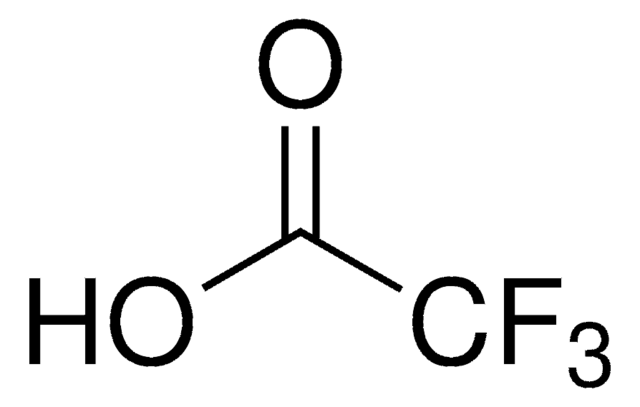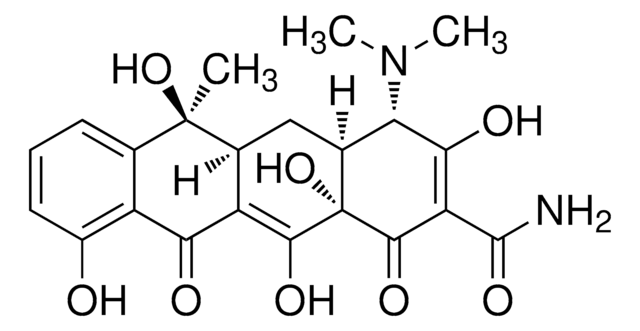74564
Trifluoroacetic acid
analytical standard
Synonym(s):
TFA
About This Item
Recommended Products
grade
analytical standard
Quality Level
vapor density
3.9 (vs air)
vapor pressure
97.5 mmHg ( 20 °C)
assay
≥99.0% (GC)
shelf life
limited shelf life, expiry date on the label
technique(s)
HPLC: suitable
gas chromatography (GC): suitable
impurities
≤0.05% water
refractive index
n20/D 1.3 (lit.)
bp
72.4 °C (lit.)
mp
−15.4 °C (lit.)
solubility
H2O: soluble
density
1.489 g/mL at 20 °C (lit.)
application(s)
environmental
format
neat
SMILES string
OC(C(F)(F)F)=O
InChI
1S/C2HF3O2/c3-2(4,5)1(6)7/h(H,6,7)
InChI key
DTQVDTLACAAQTR-UHFFFAOYSA-N
Looking for similar products? Visit Product Comparison Guide
General description
Application
Trifluoroacetic acid may be used as an analytical reference standard for the determination of the analyte in water matrices using high-performance liquid chromatography coupled to tandem mass spectrometry.
signalword
Danger
hcodes
Hazard Classifications
Acute Tox. 4 Inhalation - Aquatic Chronic 3 - Eye Dam. 1 - Skin Corr. 1A
Storage Class
8A - Combustible, corrosive hazardous materials
wgk_germany
WGK 2
flash_point_f
212.0 °F - Pensky-Martens closed cup
flash_point_c
> 100 °C - Pensky-Martens closed cup
ppe
Faceshields, Gloves, Goggles, type ABEK (EN14387) respirator filter
Choose from one of the most recent versions:
Certificates of Analysis (COA)
Sorry, we don't have COAs for this product available online at this time.
If you need assistance, please contact Customer Support.
Already Own This Product?
Find documentation for the products that you have recently purchased in the Document Library.
Customers Also Viewed
Our team of scientists has experience in all areas of research including Life Science, Material Science, Chemical Synthesis, Chromatography, Analytical and many others.
Contact Technical Service


